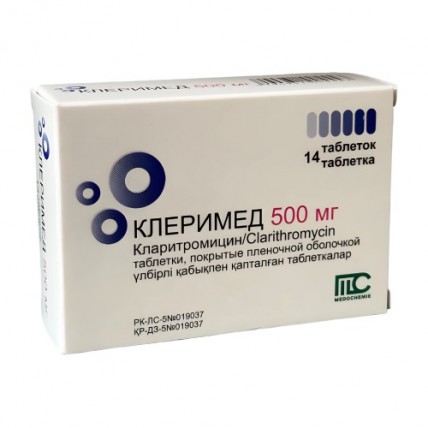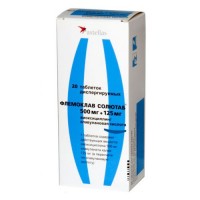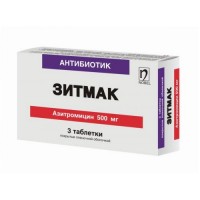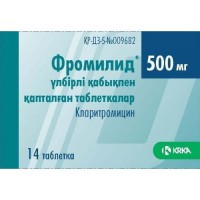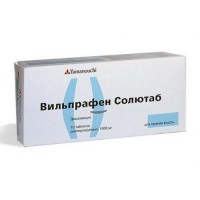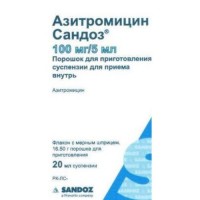CLERIMED (Clarithromycin) 500 mg, 10 tablets
- $33.00
What is Clerimed (Clarithromycin)?
Clerimed is an antibiotic medicine containing Clarithromycin, which belongs to the macrolide group of antibiotics.
It is used to treat various bacterial infections, working effectively by inhibiting bacterial protein synthesis, thereby stopping bacterial growth.
It’s particularly useful against respiratory tract infections, skin infections, and even certain stomach infections.
Available in tablet form, Clerimed is convenient to take and suitable for systemic antibacterial therapy.
What Are the Uses of Clerimed?
Clerimed is indicated for treating infections caused by sensitive microorganisms, which include:
- Upper Respiratory Tract Infections: Such as sinusitis and pharyngitis.
- Lower Respiratory Tract Infections: Including bronchitis (both acute and chronic) and pneumonia.
- Skin and Soft Tissue Infections: These could range from mild to moderate conditions such as folliculitis, erysipelas, and cellulitis.
- Mycobacterial Infections: Both disseminated or localized, particularly infections caused by Mycobacterium avium, Mycobacterium intracellulare, Mycobacterium chelonae, Mycobacterium fortuitum, or Mycobacterium kansasii.
- Peptic Ulcer Disease: It is used as part of a combination therapy for eradicating Helicobacter pylori to treat duodenal ulcers.
Who Should Not Use Clerimed?
Clerimed has several contraindications, and it is essential to understand if it’s the right medication for you:
- Allergic Reactions: If you have had allergic reactions to macrolide antibiotics or any ingredient in Clerimed, it should not be used.
- Drug Interactions: Clerimed cannot be taken with certain medications like ergotamine, cisapride, pimozide, and simvastatin due to risks of severe drug interactions. Taking these drugs simultaneously may lead to conditions such as heart arrhythmias, severe muscle breakdown, or other toxic effects.
- Severe Health Conditions: Those with a history of severe liver disease, kidney disease (especially when combined), or heart rhythm issues should avoid this medication unless prescribed specifically by a healthcare provider.
- Electrolyte Imbalance: If you have low potassium or magnesium levels, this medicine might not be safe.
- Underage Use: Clerimed is not recommended for children under the age of 18.
What Should Be Considered Before Taking Clerimed?
Before starting Clerimed, it is important to take the following precautions:
- Kidney and Liver Conditions: Patients with severe kidney or liver conditions may need dosage adjustments or an alternative therapy.
- Drug Interactions: Clerimed can interact with a wide range of medicines, including but not limited to anticonvulsants, heart medications, antifungals, and other antibiotics. Always inform your doctor of any current medications.
- Pregnancy and Breastfeeding: Clerimed is generally not recommended during pregnancy, especially in the first trimester, unless deemed necessary by a healthcare provider. It can pass into breast milk, so caution is required if breastfeeding.
- Driving and Operating Machinery: Clerimed can cause dizziness or confusion; avoid driving or using heavy machinery if these effects occur.
How Should Clerimed Be Taken?
Clerimed tablets should be taken by mouth, with or without food. The usual dosage and treatment duration depend on the type and severity of the infection:
- Respiratory, Skin, and Soft Tissue Infections: The typical dose is 250 mg twice daily, which may be increased to 500 mg twice daily for severe infections. The treatment generally lasts between 6 to 14 days.
- Eradication of H. pylori in Peptic Ulcer Disease: Clerimed can be part of combination therapy with other medications like amoxicillin and omeprazole, typically for 6 to 14 days.
What Are the Possible Side Effects of Clerimed?
Like all medications, Clerimed can have side effects. Some common ones include:
- Gastrointestinal Issues: Nausea, vomiting, abdominal pain, and diarrhea.
- Taste Changes: A common complaint is an altered sense of taste.
- Allergic Reactions: Skin rash or severe allergic responses may occur.
- Liver Function Changes: In rare cases, Clerimed can affect liver enzymes and cause jaundice.
- Cardiovascular Issues: There is a risk of heart rhythm changes, especially for those with pre-existing heart conditions or who take medications that affect the heart.
If severe reactions like rapid heart rate, yellowing of the skin or eyes, or persistent vomiting occur, medical attention is necessary immediately.
What Happens in Case of an Overdose?
Overdose of Clerimed can lead to intensified gastrointestinal symptoms like nausea and vomiting. In some cases, it may also cause mental confusion or heart rhythm disturbances. If an overdose is suspected, seek medical help right away. Treatment generally involves stomach lavage and supportive measures, as dialysis is not effective in significantly reducing the levels of Clarithromycin.
How Should Clerimed Be Stored?
Clerimed should be stored in a dry, dark place, out of the reach of children.
Keep it at a temperature below 25°C (77°F) to ensure its stability and effectiveness.
What Should Be Avoided While Taking Clerimed?
Certain foods or supplements may need to be avoided while on Clerimed to prevent interactions:
- Grapefruit Products: Grapefruit may increase the level of Clerimed in your blood, potentially leading to side effects.
- St. John’s Wort: This herbal supplement can decrease the effectiveness of the antibiotic.
Moreover, always follow the doctor's instructions regarding any other medications you may need to avoid during the treatment period.
Is Clerimed Suitable for Long-Term Use?
Clerimed is not intended for long-term use. Prolonged or repeated use can lead to secondary infections or antibiotic resistance. Fungal infections might also develop if the beneficial bacteria in the body are disrupted. If symptoms persist, a doctor should be consulted for reevaluation and possibly changing the treatment.
When Should You Contact a Doctor?
While taking Clerimed, contact a healthcare provider if you experience:
- Severe Allergic Reactions: Difficulty breathing, severe rash, or swelling.
- Signs of Liver Problems: Such as persistent nausea, yellowing of the eyes or skin, or dark urine.
- Changes in Heart Rate: Sudden irregular or fast heartbeats.
